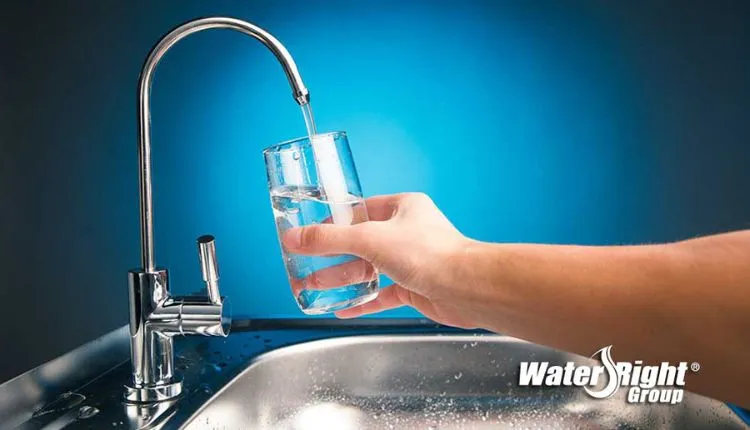Upgrade Your Water Quality with Our Water Filters for Fridges
Are you tired of buying bottled water and contributing to plastic waste? Or maybe you’re concerned about the quality of water from your fridge? Worry no more! In this article, we’ll explore how upgrading your water quality with our water filters for fridges can lead to a healthier, more eco-friendly lifestyle while providing better-tasting water.
Why is Water Filtration Important?
Health Benefits
Water filters remove impurities like chlorine, heavy metals, and bacteria, which can adversely affect your health. By using a water filter for your fridge, you ensure that you’re drinking clean and safe water, which is essential for maintaining good health.
Environmental Impact
Relying on bottled water leads to a massive amount of plastic waste. With a water filter in your fridge, you’ll significantly reduce your plastic consumption, contributing to a greener and more sustainable environment.
Improved Taste
Filtered water tastes better as it’s free from impurities, chemicals, and odors that can alter the taste of water. With a fridge water filter, you’ll enjoy clean, refreshing, and better-tasting water.
Types of Water Filters for Fridges
Activated Carbon Filters
These filters use activated carbon to remove contaminants, such as chlorine, pesticides, and organic compounds, from water. They’re the most common type of fridge water filters due to their affordability and effectiveness.
Reverse Osmosis Filters
Reverse osmosis filters utilize a semi-permeable membrane to remove impurities, including heavy metals, fluoride, and bacteria. These filters are highly effective but may require more space and maintenance compared to activated carbon filters.
Ultraviolet Filters
Ultraviolet filters use UV light to kill bacteria, viruses, and other microorganisms, making your water safe to drink. They’re energy-efficient and don’t require filter replacement. However, they don’t remove chemicals, so you may need to pair them with other filtration methods.
Sediment Filters
These filters remove larger particles, such as sand, rust, and sediment, from water. They’re often used in conjunction with other filters to prolong their lifespan and improve overall water quality.
How to Choose the Right Water Filter for Your Fridge
Compatibility
Make sure the filter you’re considering is compatible with your fridge model. Check your fridge’s manual or manufacturer’s website for the recommended filter type and model number.
Filter Life
Different filters have varying lifespans, ranging from a few months to a couple of years. Consider the filter’s life and replacement frequency when making your decision.
Budget
Filters come in various price ranges. Weigh the cost against the filter’s performance, lifespan, and maintenance requirements to find the best value for your money.
Installation and Maintenance
Installing a water filter for your fridge is usually a straightforward process that doesn’t require professional help. Most filters can be easily installed by following the manufacturer’s instructions. However, if you’re unsure or uncomfortable with the installation process, it’s always best to consult a professional.
Regular maintenance is crucial for optimal filter performance. This includes changing the filter according to the recommended schedule, cleaning the filter housing, and checking for leaks. By keeping up with the maintenance, you’ll ensure that your water filter continues to provide clean, safe, and great-tasting water.
Conclusion
Upgrading your water quality with a water filter for your fridge is a smart move. It provides numerous health benefits, improves taste, and reduces your environmental impact. By choosing the right filter for your needs and maintaining it properly, you’ll enjoy clean and refreshing water while making a positive impact on your health and the environment.
FAQs
- Can I use any water filter for my fridge, or do I need a specific one?
You need a water filter that’s compatible with your fridge model. Consult your fridge’s manual or the manufacturer’s website to determine the correct filter type and model number.
- How often should I change my fridge water filter?
The filter replacement frequency depends on the filter type and usage. Generally, fridge water filters need to be replaced every 6 to 12 months. Always follow the manufacturer’s guidelines for optimal performance.
- Will a water filter remove all contaminants from my water?
While water filters can significantly improve water quality, no single filter can remove all contaminants. The effectiveness of a filter depends on the filter type and the specific contaminants it’s designed to remove.
- How do I know when it’s time to change my water filter?
Signs that it’s time to change your water filter include a change in taste or odor, reduced water flow, or if it’s been longer than the manufacturer’s recommended replacement interval.
- Can I install a water filter on a fridge that didn’t come with one?
Yes, you can add a water filter to a fridge that didn’t come with one, but you may need to consult a professional for the installation. There are also external water filter options available that can be connected to your fridge’s water line.




